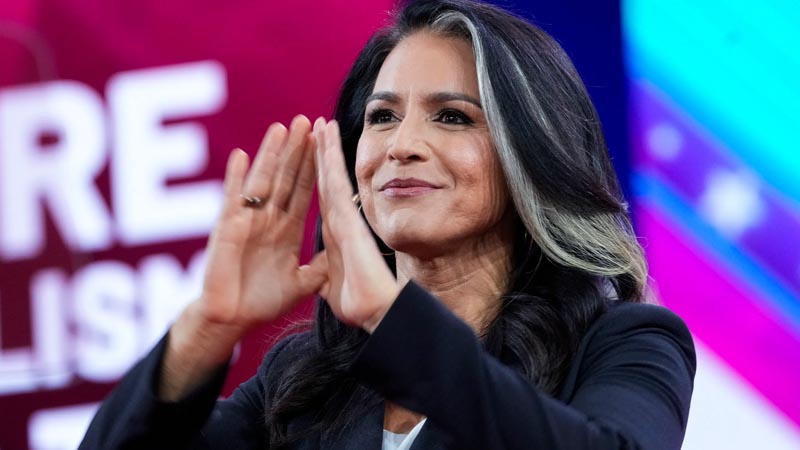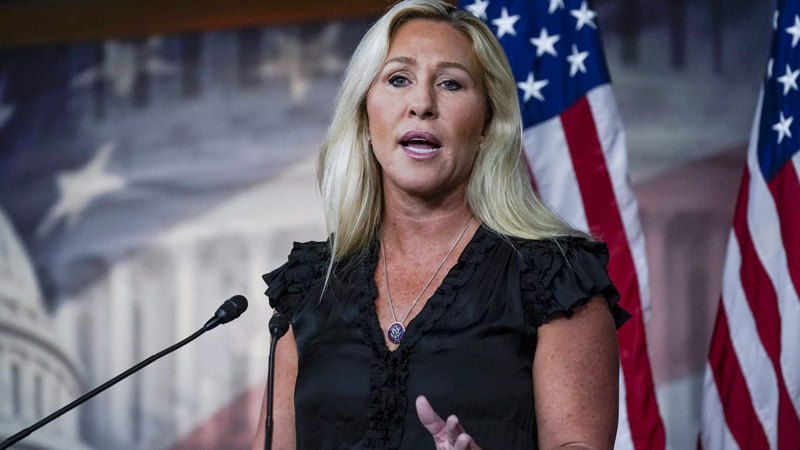Trump Supporter Shares Bizarre 9/11 Conspiracy Theory “He’s Going to Expose the Truth”

Getty Images/David Becker
At a rally for former President Donald Trump in Doral, Florida, a supporter shared a bizarre conspiracy theory, claiming it was secretly revealed by MAGA hats. While waiting to hear Trump speak on Tuesday, RSBN interviewed a supporter who had a theory about the terrorist attacks of Sept. 11, 2001. The woman suggested that Trump had been the “continuous” president since his first term, based on a peculiar interpretation of the MAGA hat.
“But one thing he has is one of these hats that you see the red ‘Make America Great Again,‘” she said. “I keep showing what I found out about this hat, 45 dash 47. In the English language, a hyphen means continuous.”
She continued with her conspiracy theory: “And then if you go a little further and you add four and five, you get nine. And if you add four and seven, you get eleven.” The woman linked these numbers to the 9/11 attacks, suggesting a hidden message: “He’s always telling us, and he’s now talking about 9-11 a lot. He’s going to expose the truth that I didn’t want to find out, but I know now.”
She did not provide further details about the “truth” Trump allegedly exposed, leaving her claims vague and unsubstantiated. This peculiar interpretation highlights the extent to which some supporters go to create elaborate theories, often devoid of evidence, in support of their beliefs about Trump, told Raw Story.
The rally, held at Trump Doral, was filled with supporters eagerly awaiting the former president’s speech. The atmosphere was charged with enthusiasm, and many attendees sported MAGA hats and waved Trump flags. Despite the lighthearted rally atmosphere, the woman’s conspiracy theory served as a reminder of the more extreme beliefs held by a subset of Trump’s base.
Such theories have circulated within some pro-Trump circles, where adherents often interpret symbols and messages in unconventional ways to support their worldview. These interpretations frequently lack basis in reality but gain traction among those looking for deeper, often conspiratorial, meanings behind political events.
As Trump continues his campaign for the 2024 presidential election, it is likely that similar theories and interpretations will emerge from his most ardent supporters. The former president has frequently been a polarizing figure, inspiring both fervent support and intense opposition. The persistence of such conspiracy theories underscores the challenge of addressing misinformation in today’s highly polarized political climate.


